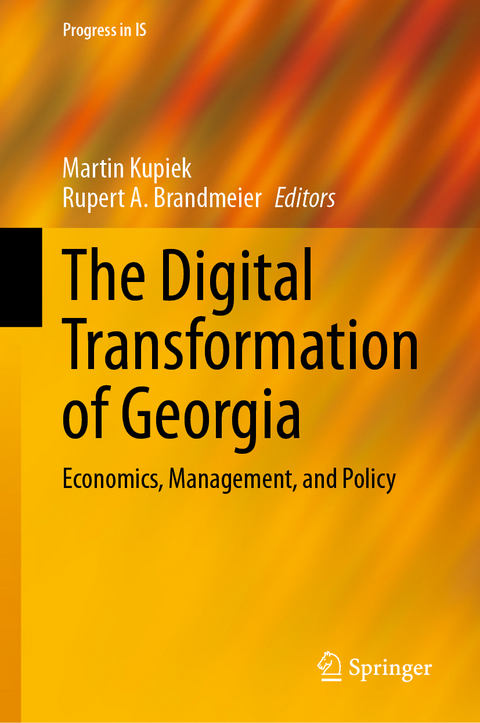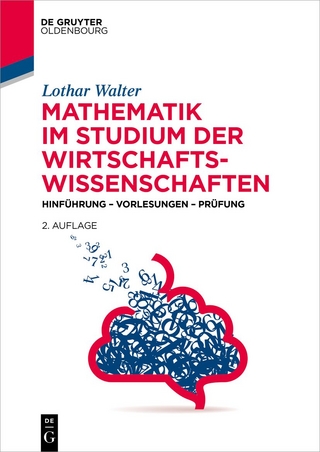
The Digital Transformation of Georgia
Springer International Publishing (Verlag)
978-3-031-26450-4 (ISBN)
This edited volume discusses the path towards the digital transformation of Georgia from two major viewpoints: First, an economic perspective that includes contributions around economic integration and orientation towards the EU, and an analysis of its implications for a small country like Georgia. Second, various aspects of digital transformation initiatives will be studied from an enterprise and a managerial perspective. In this part, innovative management methodologies are conceptualized such as agile change management and the enterprise transformation cycle to facilitate the shift from the manufacturing and agriculture industry towards an increasing digitalization of companies.
These concepts serve as fundamental cornerstones to enable the development of a digital transformation roadmap including the analysis of the potential of establishing a digital hub in Georgia and the Caucasus area. Based on a survey of national and international managers, important HR key performance indicators referring to mobility and digitalization of the workplace are discussed. The impact of pandemic (post-Covid) scenarios for future organizational development as well as large-scale labor migration from East to West is also in focus.
The authors present implications for policymakers and business owners as well as top-level executives resulting in a set of recommendations for future actions.
Martin Kupiek works as an independent management consultant and Professor of Management. He holds a Master of Science in Economics and Social Sciences from the TU Dortmund in Germany, a Master of Business Administration from the University of Vermont, USA and a PhD in Management from the University of Innsbruck, Austria. He also belongs to the circle of Fulbright Alumni in Germany. He has published several books and chapter contributions in renowned publications. More than 30 years of professional experience as a consultant and manager enables him to provide consulting services in Organizational Change Management for large and international corporations. His research activities focus on emotions in organizations and their influence on employees and leaders. Prof. Dr. Brandmeier has studied Business & Economics, English and Archaeology at the Universities of Augsburg, Moscow and Munich. He has more than 30 years’ experience in international businesses, public sector and Academia. Covering a large area of subjects, his prime interests in Management are leadership and organizational development in a transformation/turn-around set-up, Program- and Project Management of high complexity and international diversity, Digitalization, Corporate Strategy and Globalization with a focus on Sustainability and Corporate Social Responsibility (CSR). His teaching portfolio at KIU reflects his practical experience and industry background: - Fundamentals of Management; - Business Ethics & CSR; - Marketing; - Operations Management; - Corporate Strategy; - Human Resources. Current research projects are: Benchmarking & Beyond a contemporary approach to innovation management, Cyber-Security Awareness (interdisciplinary project with Dept. of Math), Future of Work (employee attraction and retention in a remote working environment, intercultural leadership), Arts & Culture Management (Digitalization in Performing Arts, Museum & Exhibitions) and Tourism (Integration of Cultural Heritage Programs, Historical Site Management). He held managerial positions at global and mid-sized companies (sales, procurement, supply change management, operations & logistics) and worked as an executive management consultant in a number of restructuring and turn-around projects. Prof. Brandmeier is a certified project manager (PMP), CISM, SSCP and SCRUM-Master. His PhD thesis (defended 2002) analyses the impact of IT-Outsourcing on companies and evaluates key success factors for successful outsourcing projects. He has been a visiting professor and a lecturer in EMEA & LATAM. He contributed research papers for Cyber-Security, Business Intelligence, Market Entry-Studies, Procurement, Benchmarking & Innovation Mgt, HR and Culture Mgt. Besides his activities as an economist he takes a vital interest in almost all areas of Archaeology, Underwater-Archaeology and History. Having accomplished his BA/MA in Classical Archaeology at Ludwig-Maximilian University, Munich with a focus on ancient trade routes and the diffusion of Hellenistic culture, he tries to merge challenges of cultural heritage conversation with contemporary aspects in modern Tourism. When not wreck-diving the Seven Seas you may meet him on historic battle grounds or ritual sites all over the world.
Preface The relevance of the digital transformation for the societal and economic development of Georgia.- Part A Digital Transformation and the Economic Perspective.- Chapter 1 Digital work platforms in the modern labor market.- Chapter 2 The Role of Foreign Direct Investment (FDI) on Georgian Economy.- Chapter 3 How to attract startups to boost national economies - A German-Georgian comparison and case study.- Chapter 4 KIU-INNOVATE: A flagship initiative for an entrepreneurial and engaged university in Georgia.- Part B Digital Transformation and the Enterprise Perspective.- Chapter 5 The Enterprise Transformation Cycle - A Model for Digital Transformation.- Chapter 6 Agile project management methodology - Exploring factors which foster successful introduction and institutionalization of the framework.- Chapter 7 Revisiting Organizational Change Management (OCM) - a Context Sensitive and Dynamic Approach of Change.- Chapter 8 Recommendations for leaders of virtual teams tobuild trust.- Chapter 9 Remote Work - The Great Equalizer of the 21st Century? Stress and employee motivation in High and Low-Cost Countries - Exemplary Analysis for Germany, Bulgaria, and Georgia.- Chapter 10 Digitalization as a Driver for successful Talent Acquisition and Employee Retention.- Chapter 11 Cultural Work and Cultural Management in the Digital Post-Pandemic Change of Time - Opportunities, Risks and Challenges in the Context of the 4th Industrial Revolution.- Part C Conclusion and Implications for Policy makers.- Chapter 12 The Potential of the Digital Economy for Economic Development: The Case of Georgia.
| Erscheinungsdatum | 30.04.2023 |
|---|---|
| Reihe/Serie | Progress in IS |
| Zusatzinfo | XIV, 200 p. 28 illus., 22 illus. in color. |
| Verlagsort | Cham |
| Sprache | englisch |
| Maße | 155 x 235 mm |
| Gewicht | 480 g |
| Themenwelt | Mathematik / Informatik ► Mathematik ► Finanz- / Wirtschaftsmathematik |
| Wirtschaft ► Allgemeines / Lexika | |
| Wirtschaft ► Volkswirtschaftslehre ► Makroökonomie | |
| Schlagworte | Digital transformation • Economy of Georgia • New technology adoption • Policy Implementation • Strategic roadmap for Georgia |
| ISBN-10 | 3-031-26450-9 / 3031264509 |
| ISBN-13 | 978-3-031-26450-4 / 9783031264504 |
| Zustand | Neuware |
| Informationen gemäß Produktsicherheitsverordnung (GPSR) | |
| Haben Sie eine Frage zum Produkt? |
aus dem Bereich


